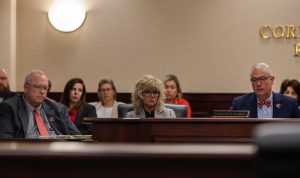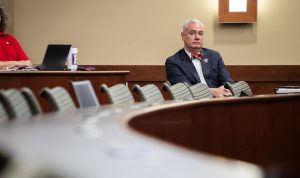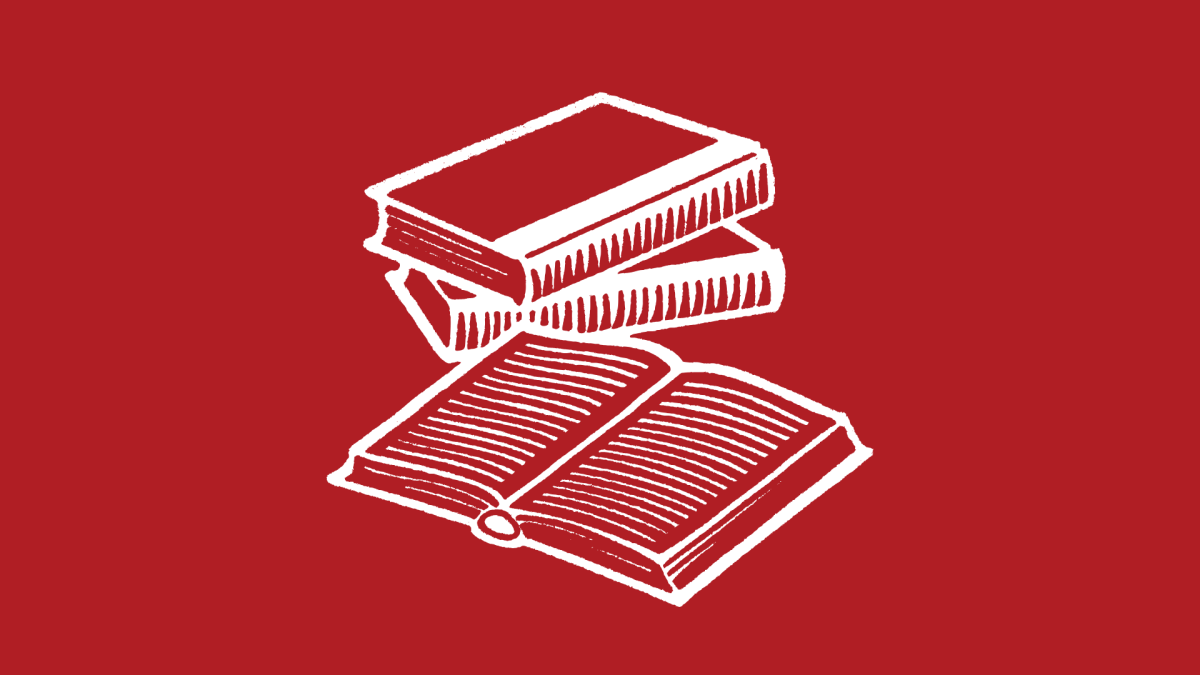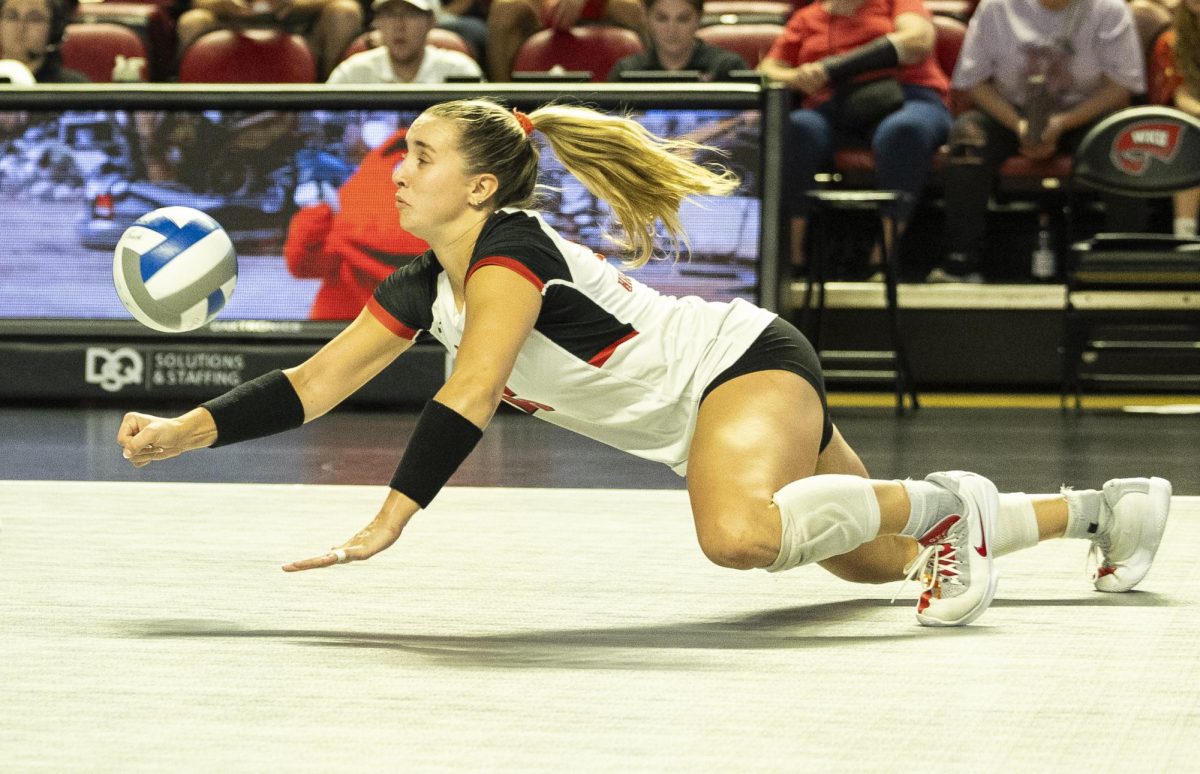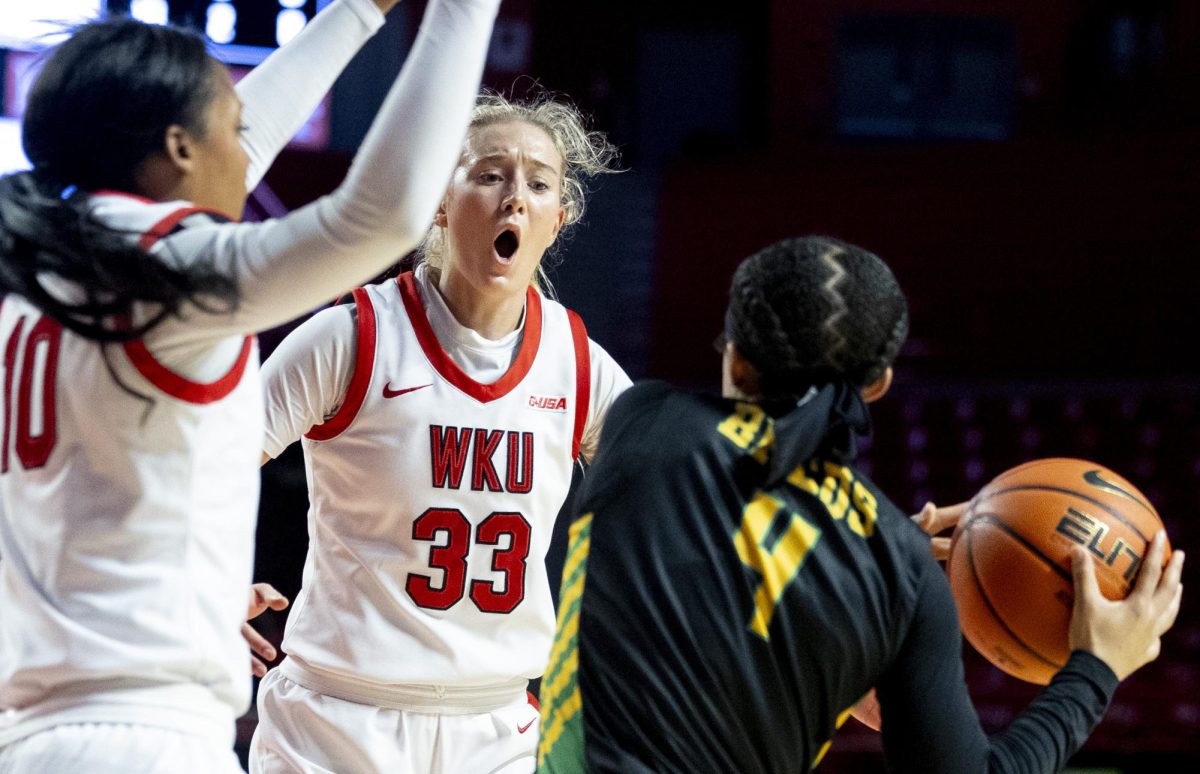OPINION: On the Herald’s birthday remember to support student journalism
January 28, 2020
Issue: On Jan. 29 the Herald celebrates 95 years of serving WKU’s campus, the same day as Student Press Freedom Day.
Our Stance: Student press is vital to college campuses to keep the community aware of problems impacting their daily lives and to hold administrators and those in power accountable. In 95 years, the Herald has encountered many barriers to a free press from WKU.
In the past 95 years, students, faculty, staff, alumni and community members have been able to freely pick up a copy of the Herald and stay informed on the issues impacting this campus.
Through the Herald, we have kept the community informed on the sudden resignation of a dean and the later resignation of a provost, mold growing in every dorm and faculty insecurity.
While the work we do at the Herald may be viewed as simply student work, it is an invaluable asset to WKU both for student journalists and the community.
A free press influences change when it is necessary. In a time when the press is frequently under attack and quality journalism is labeled as fake news, it is essential to support and advocate for a free press on every level.
WKU claims to support the Herald and the numerous accomplishments of WKU student journalists, yet they have continuously found ways to suppress or create barriers for those same students.
The Herald is roughly a month away from its third year of being sued by WKU over access to public records involving sexual misconduct. The lawsuit began under former WKU President Gary Ransdell in 2017 but has rolled over to current President Timothy Caboni’s time.
Former Herald reporter Nicole Ares requested records of employee sexual misconduct at all Kentucky public universities. Every university except for Kentucky State University and WKU complied.
WKU continues to argue the requested records are protected by the Family Educational Rights and Privacy Act, despite former attorney general, now Governor Andy Beshear’s intervention and orders to release the records. Ultimately, the only way WKU could avoid releasing the records was to sue the Herald. The decision to do so has resulted in a long and costly legal battle. As of January 2019, WKU had spent nearly $44,000 in legal fees.
WKU maintains they will not release the records for the sake of student privacy. However, the Herald never intended to release those details. The point of the request and having access to these records is to ensure WKU is taking the right action to protect students.
Last semester WKU unofficially changed its communication strategies. Previously, Herald reporters could interview members of the administration and the president’s cabinet.
Now, communication and interviews with those individuals must go through Director of Media Relations Bob Skipper. In a meeting with some of the Herald editorial board, he explained there is no formal or written mandate barring us from speaking with administrators or scheduling interviews directly.
Skipper said the change was made to give administrators adequate time to prepare and be knowledgeable about the topic. He added the example that with a typical company reporters would similarly be expected to work through media relations staff.
While it is important for us as journalists to be fair and courteous when interviewing administrators by giving them proper context and time, it is hard to believe this is the only reason WKU decided to make a shift.
On the outside, this change may seem irrelevant or standard.
However, to us this change means all our information coming from administration, those who impact the most change at this university, is being filtered and carefully watched. It means we may not be able to report major university changes as quickly as we used to.
The Herald has gone through many challenges and attempts to censor con- tent. The hurdles this publication is facing now will not stop student journalists from growing into their profession and keeping this campus informed.
However, these hurdles do show a lack of support for a free student press — a problem we should all question and be concerned about.






